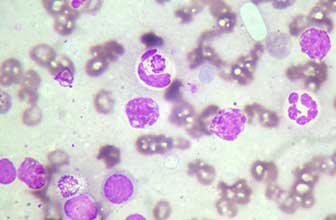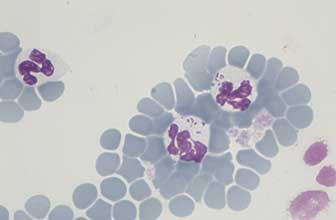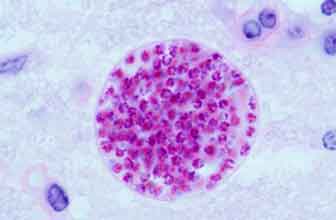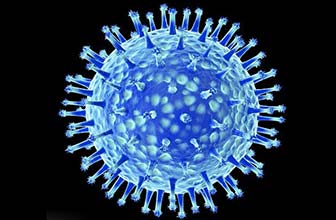Infectious disease
West Nile virus infection (WNV)
West Nile virus infection (WNV) is a vector-borne disease caused by a flavivirus of the Flaviviridae family that affects humans, birds and horses. The transmission of the virus occurs through the bite of an infected mosquito. Rarely, the virus can be spread by laboratory exposure, blood transfusion, organ transplant, and from mother to child during pregnancy, childbirth, or breastfeeding. The main hosts are birds. The symptoms, in most cases, do not appear. Occasionally causes fever, headache, body and joint pain, vomiting, diarrhea, or rash. In more severe cases, it can affect the nervous system, causing encephalitis or meningitis, and leading to death. The treatment consists of antipyretics and analgesics, but only to reduce the symptoms. There are vaccines against the equine condition, but not yet for humans. As prevention it is recommended to avoid mosquito bites. The diagnosis of West Nile virus infection is made by detecting antibodies against the disease, neutralization tests, cultures or PCR.
WNV is a zoonoses present throughout the world except Antarctica, primarily in Africa, Australia, Europe, the Middle East, North America, and western Asia. WNV activity generally occurs during the summer months through fall. The severity of the disease can occur in people of any age, with those over 60 years of age and people with certain medical conditions (cancer, diabetes, hypertension...) being the most at risk. 80% of human cases are asymptomatic, 1% have severe symptoms, and of these, 10% end in death.
In horses, WNV infection is considered a notifiable disease, and is increasedly likely to cause serious illness that can be fatal. 70% of cases in horses are asymptomatic, between 1-10% have severe symptoms, and of these, between 20-60% end in death.
References of West Nile virus infection (WNV)
RECOMBINANT ANTIGENS
Name, references, and description
Brochures
- Rekom Biotech catalogue
- Recombinant proteins for in vitro diagnosis of human infectious diseases
- Recombinant proteins for in vitro diagnosis of animal infectious diseases
- Farm animal infectious diseases
- Recombinant proteins for vector-borne diseases
- IVD reagents for Transfusion-Transmitted Infectious diseases
Videos
Specialists in IVD reagents for infectious disease diagnosis
We ensure a commitment to absolute confidentiality regarding all information received and generated related to your project.
-
[[carrito.product.name]]
- [[sku.sku]]
Or if you prefer...
We will analyze your request to prepare a quote tailored to your needs.
-
[[carrito.product.name]]
- [[sku.sku]]
As manufacturers, we can adapt our products to your needs.
Contact us!








